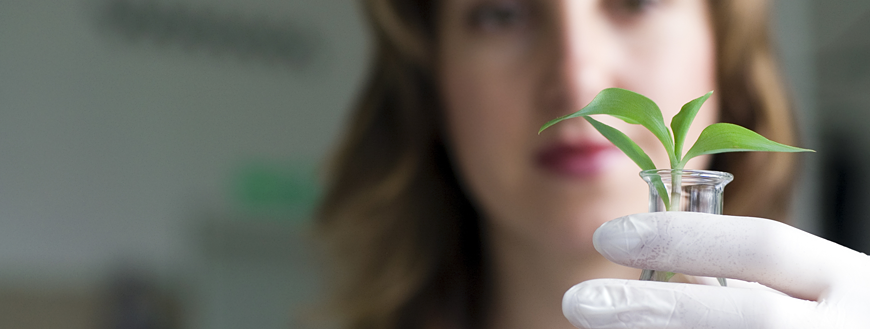
Context
Maize is currently the only major hybrid cereal crop in Europe that offers outstanding possibilities in terms of performance and environmental impact. Taking into account all activities, the turnover of the maize industry in France is estimated to reach 2280 M€ per year.
French breeders are also ranked second behind the USA in terms of maize seed production. With changing diets and growing world populations, rising prices of fertilizers and phytosanitary products, increasing competition between food and non food uses and the negative effects of high temperature and drought resulting from climate change, the world maize production becomes insufficient to meet the demand.
Maize has demonstrated sustained gain in productivity in a global stagnation context in France. However, during the past 10 years, yield increase through genetic gain has been constant but slower for the late earliness groups and harder to obtain for the European Companies suggesting that breeding past methods are not going to bring future solutions to yield increase.
In order to face the challenges of delivering safe and high-quality food and feed in a sustainable manner while maintaining yield and stability across different environments affected by climatic change, a paradigm shift is needed in maize breeding. Scientific breakthroughs are needed to take advantage of emerging technologies and better valorize the potential of this species.
Objectives and approach
AMAIZING aims at the development of innovative breakthrough in breeding methods and agricultural practices for the production of high yielding crop varieties with improved environmental values. It relies on a large partnership between the key players of maize economy in France and in particular a strong private partnership unique to date in the history of maize research in France. This partnership will ensure that the new knowledge, resources and methods resulting from the project will be translated into products and varieties supporting the maize economy in France.
To reach these goals, AMAIZING will break barriers that have interfered by the past in the translation and use of knowledge and molecular resources into breeding. This ambitious project will also enable better knowledge of the genome organization, adaptation mechanisms and genome plasticity. Ultimately, it will enable efficient molecular based improvement to reduce the time from trait to commercialization.
AMAIZING will start with the establishment of tools, methods and plant material for association mapping and ecophysiological studies of yield under abiotic stresses, down to the evaluation of new breeding methods and the generation of molecular and innovative toolkit that will support the selection of improved maize varieties. Because water deficiency accompanying climate changes is the biggest threat of the coming years, AMAIZING will focus on maize adaptation to limited water supply, cold tolerance and nitrogen use efficiency. These traits are the major targets for a better utilization of resources and improved environmental impact.
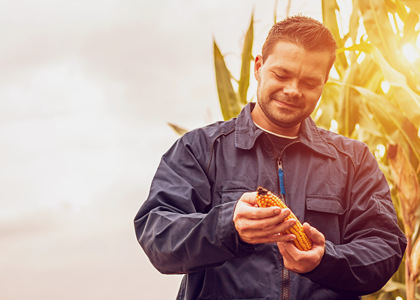
International level
Full benefit of present possibilities requires: the characterization of genetic diversity, taking into account structural variation,and epigenetic marks, in order to optimize dense genotyping needed for genome wide association and genome wide selection.. Second is the development of appropriate precise or high throughput phenotyping strategies and finally that of optimal model to integrate information. From these two main axes, phenotyping and genotyping, the studies conducted in AMAIZING will (i) contribute at the international level to better describe the plasticity of the maize genome and understand the genetic or epigenetic factors that contribute to its wonderful adaptation capacities to several environments and constraints, (ii) combine genetic, genomic and ecophysiology analyses with precise phenotyping adapted to high number of plants in order to identify loci and candidate genes for yield or yield stability under constraints, (iii) develop innovative tools and methods to optimize the utilization of genetic resources and breed for new improved maize varieties for the concerned traits. The project should also contribute to strengthen the French position in the international effort to characterize genome maize variations, and increase the characterization and use of European genetic diversity.

Valorization
AMAIZING will not only produce new resources, data and material, but will also follow their valorization by partners (usually competitors) that agree to synergize their efforts within the partnership of this project and give a feedback of their value in their programs. The project also integrates socio-economic analyses that will enable to evaluate the benefit of innovative genetics and ecophysiologics results for the breeding sector and transfer of knowledge to agriculture.
These objectives will be reached through an integrative approach that will comprise nine workpackages.
Impact
The length of the project (8 years) associated with a strong commitment in human resources and financial support by the partners including breeding companies will enable for the first time the exploitation of genetic resources, methods and tools of direct interest for breeders.
AMAIZING will establish a pipeline for maize improvement that starts with the massive sequencing of varieties joined by the identification of new types of polymorphisms and will provide improved tools and methods for the development of maize varieties with enhanced characteristics that meet end users and farmers’ needs. It will notably contribute to the expansion of the natural maize diversity available in applied breeding and de novo diversity creation.
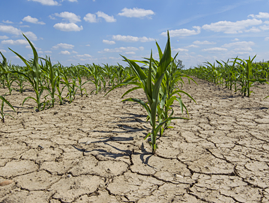
AMAIZING will contribute to a better understanding of the molecular basis of important yield related traits such as drought tolerance, nitrogen use efficiency or frost adaptation and heterosis through the identification of regions carrying genes for those traits. The simultaneous study of adaptable responses to different abiotic stresses will enable the identification of common and specific mechanisms of varietal adaptable responses.
The combination of resources developed in AMAIZING such as tools (high-throughput phenotyping, large scale gene sequencing, bioinformatics tools and portals), general information (structural variations, markers, associated loci, sequences), and methods (genomic selection, plant development models, statistical tools) will be made available to the European breeding companies partners of the project. This unprecedented innovation package that none of the partners could generate on its own will strongly support competitive breeding programs that will be deployed by the AMAIZING partners along and after the project.
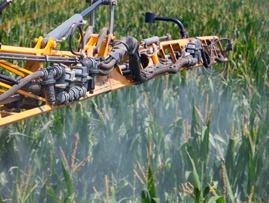
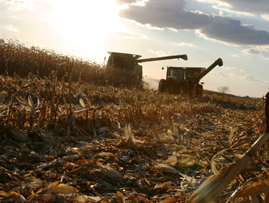
AMAIZING will guarantee significant breakthroughs on statistical methods for the prediction of agronomical value in diversified environment. AMAIZING will contribute to improve methods for registration and post-registration evaluation and will give recommendations to cooperatives, farm organizations and farmers on varietal choices.
Since validation of tools and methods will be done inside AMAIZING on ongoing breeding programs, this will lead to the rapid release of superior cultivars benefiting from the outcomes of the project such as higher yield and better tolerance to environmental stresses related to climate change and new agronomic constraints.
Genetical advancements potentially made by AMAIZING on yield under climatic and soil constraints, on optimization of water usage, energy and nitrogen balance though varietal selection will be of high importance for the maize industry at the national, European and developing countries level.
Therefore, AMAIZING will reinforce the scientific competitiveness and leadership of France in maize research as well as strengthening French agriculture and agricultural related industrial competitiveness.
Additionally, increased nutrient and water uptake efficiency will contribute to a safer environment and sustainable production while also enhancing farmers’ revenues and consumers’ protection. As superior cultivars are the starting point of any value-added chain in maize, the project will contribute directly to the improvement of these chains mainly by enhancing breeding strategies but also by having an impact on the whole chain up to the consumer.
